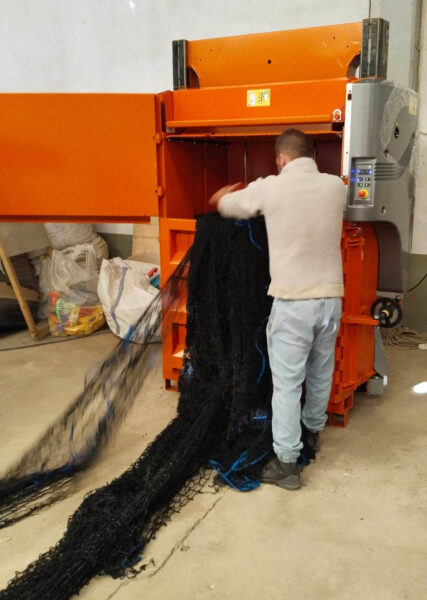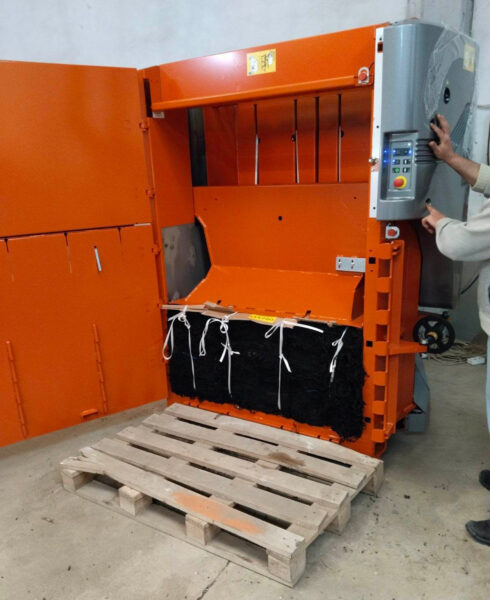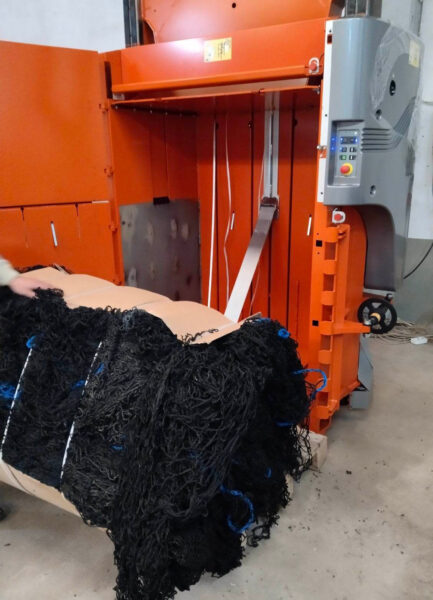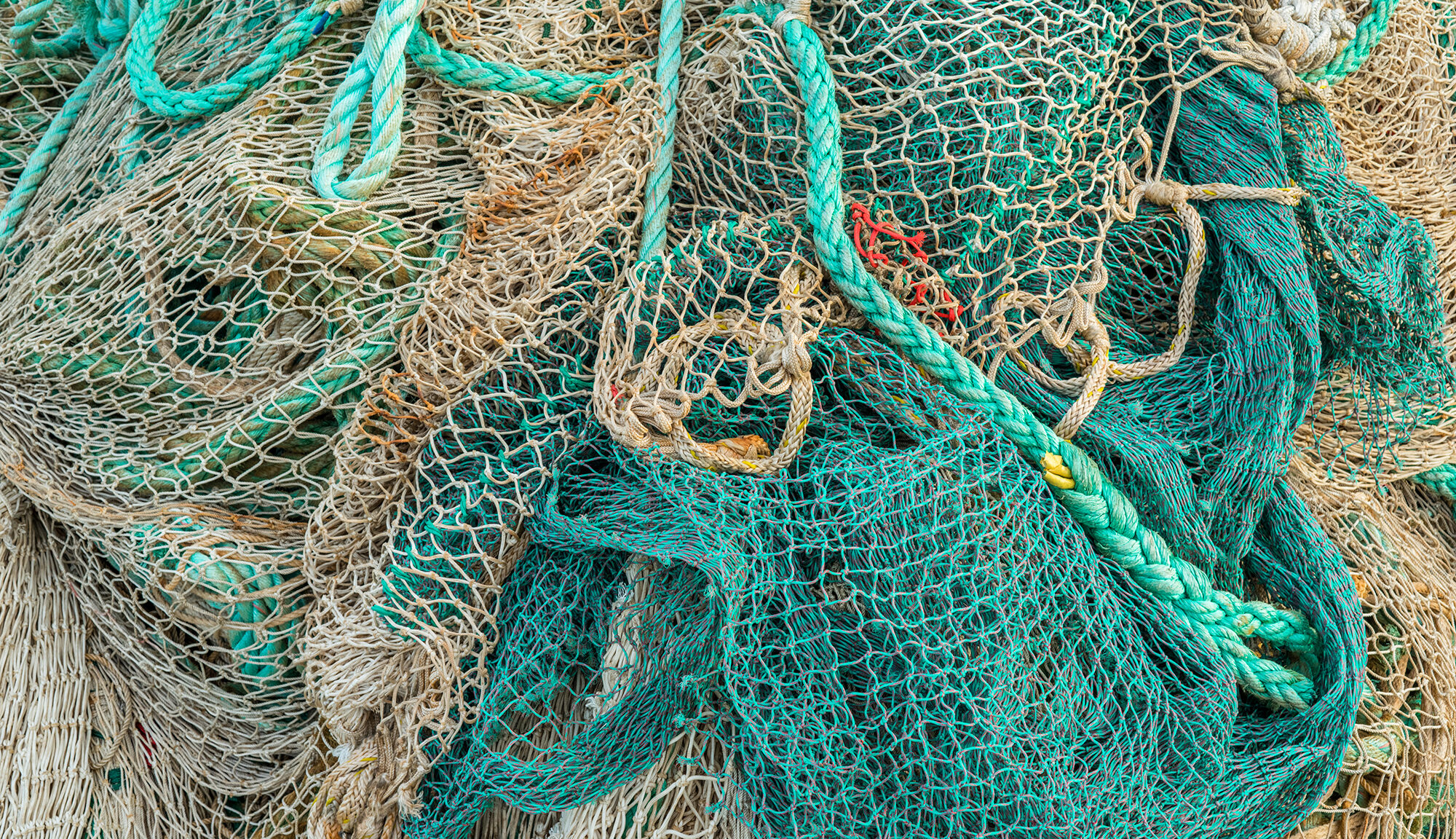BlueCycle is a Greek company that converts fishing nets into raw materials for 3D printers. It is a formidable initiative to clear the sea and the shores from plastic and at the same time find a sustainable and profitable solution for it. BlueCycle uses a high capacity Orwak baler to compact fishing nets into dense bales that can be stored and handled easily.
BlueCycle is both a Blue and a Circular economy enterprise with the aim to reuse marine plastic waste generated from shipping and fishing activities. The goal is a create new, high-quality material for production of useful items and to promote a holistic approach to the sea waste problem.
“Ghost nets” are a big threat to sea life worldwide
Fishing nets are made of various types of plastic, but they are unfortunately often found dumped in the sea, the so-called “ghost nets”, and that is a big threat to sea life and the marine ecosystem worldwide. Fishermen make a valuable contribution to the project through their cooperation in cleaning shores and the sea and other marine litter collection actions are also important for the success.
Orwak baler successfully compacts fishing nets into compact bales
BlueCycle’s lab in Piraeus is the first facility in Greece for processing and recycling plastic equipment deriving from fishing and shipping. BlueCycle required an efficient solution to compact the big volumes of collected fishing nets and Alpe-Tech, Orwak’s Greek distributor, recommended and supplied them with an Orwak Power baler. The model 3325 has the right size and capacity and the regular swing door is helpful when loading the baler with armfuls of bulky fishing nets.



When closing the door, the baler starts compacting the material automatically. The dense and compact bales are easy to store and BlueCycle is especially happy with the ability to stack the bales on top of each other to save space.
Unique 3D printed items made from marine plastic
BlueCycle utilizes a certified procedure to transform marine plastic into pellets, which will be fed back to the plastic industry and into recycled 3D printing filament. The materials used in the production are 100 % recyclable and 100 % circular plastics. BlueCycle launched “Second Nature”, its first series of furniture that serves as a stunning example of how digital design and production technologies can be applied to fight marine plastic pollution.

The designers look to the sea for inspiration when designing the furniture. With the use of robotic 3D printing, all the products are digitally crafted from up-cycled marine plastic. They are manufactured in Piraeus, Greece, and come in a wide range of colors and sizes to fit into to indoor or outdoor dining or lounge areas. Every item is unique and a true symbol of circular economy and how to turn waste into value!






